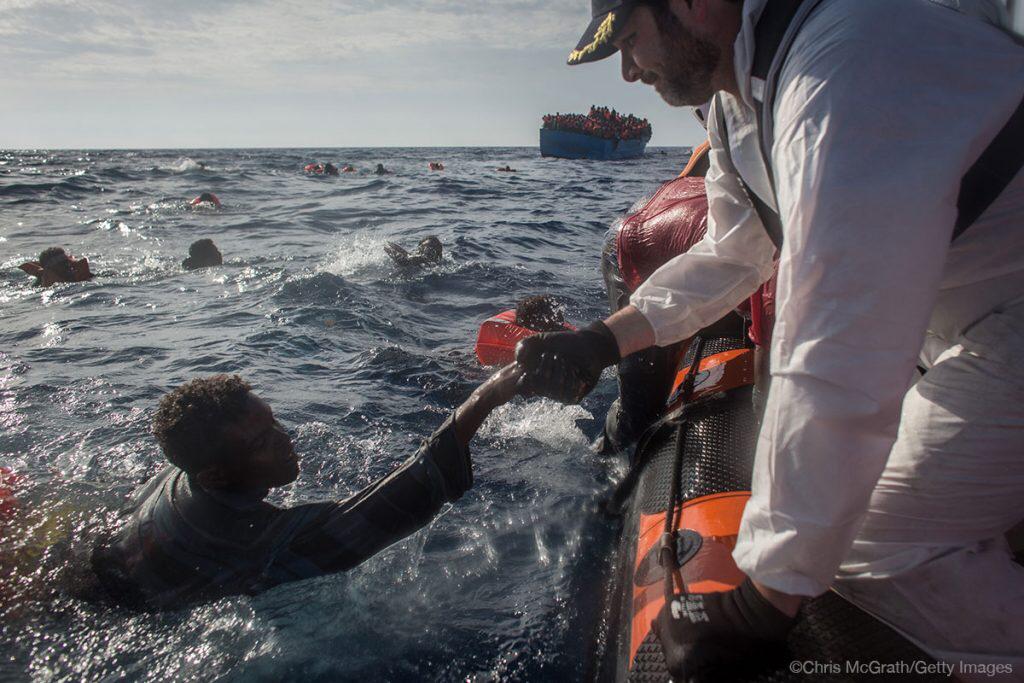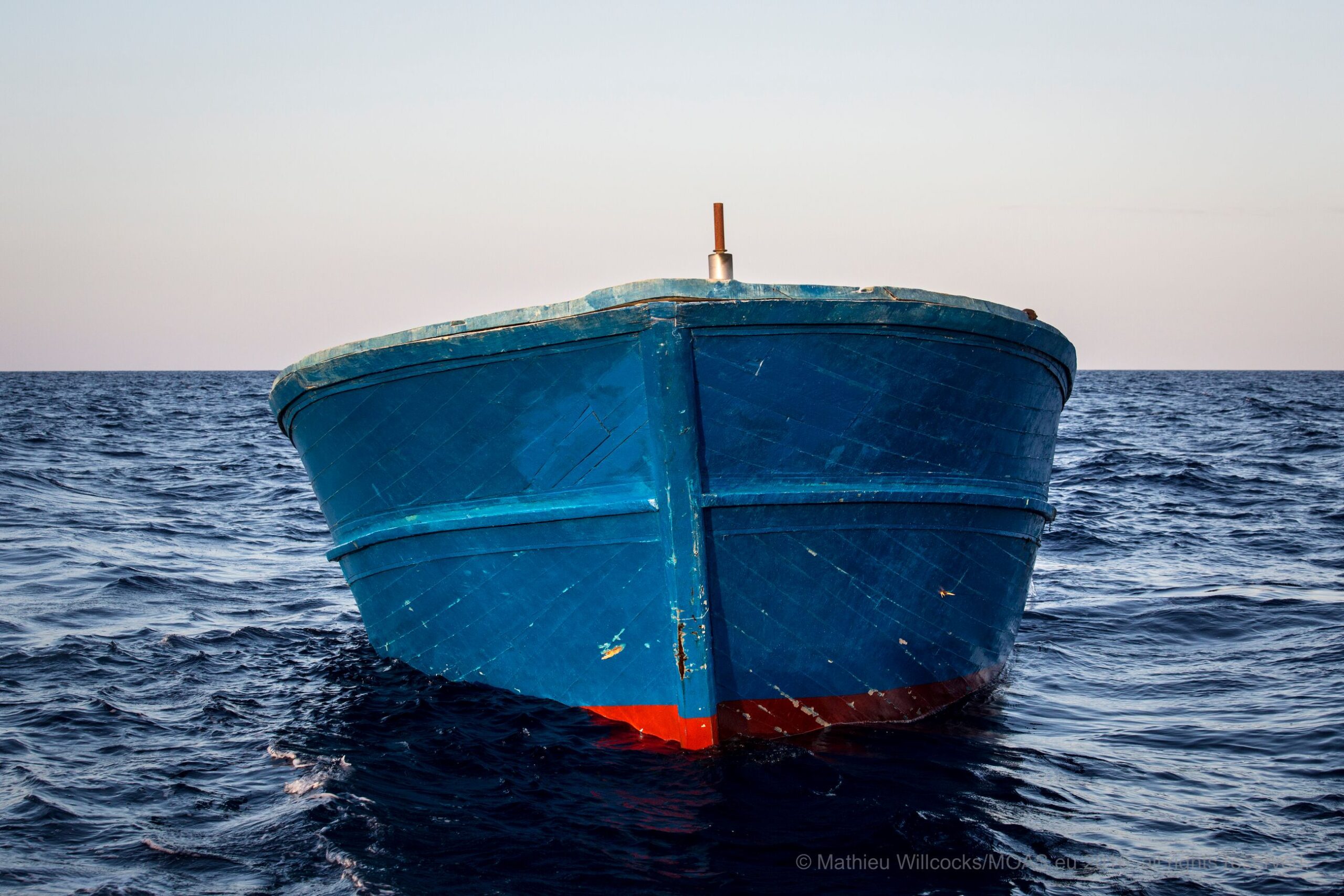At MOAS we are campaigning for the implementation and expansion of safe and legal routes. Without humanitarian corridors, migrants are at the mercy of smugglers and human traffickers, at risk of violence, hunger and exploitation, and are forced to risk their lives on increasingly perilous journeys, which many do not survive.
The COVID-19 pandemic has had an unparalleled impact on border restrictions. By mid-April, at least three in four countries, home to 91% of the world’s population, had imposed some form of border closure to slow the virus’ spread. These restrictions have made it even more difficult for people fleeing poverty, persecution and conflict to access safety and protection.
COVID-19 has further exposed the marginalisation that migrants and refugees are subjected to, and migration experts have warned that some governments are taking advantage of the pandemic to amplify anti-migration policies and neglect legal obligations to assist people in distress. The UNHCR has stated that of the 167 countries that have partially or fully closed their borders due to COVID-19, 57 have not made an exception for asylum-seekers. Meanwhile, the virus has also been utilised as a justification to prevent search and rescue (SAR) operations in the Mediterranean, as exemplified by the Italian and Maltese governments, who at the beginning of April, declared their ports unsafe for disembarkation of people rescued at sea.
Recent events in the Mediterranean
In April, we highlighted how the Alan Kurdi and Aita Mari ships had been abandoned by Italian and Maltese authorities after undertaking rescue missions. Yet subsequently, on May 5, both ships were impounded by Italian authorities, citing ‘technical and operational irregularities’. The decision,
labelled ‘grotesque’ by Seawatch, owners of the Alan Kurdi, means that the organisation would be unable to undertake rescue activities for the rest of the month.
There have been further recent events involving Maltese authorities, including reports of Maltese Armed Forces intercepting a boat carrying 101 migrants, and then after providing supplies and fuel, ordering the boat to continue towards Italy. In addition, on April 15, a privately owned boat, allegedly under orders from Maltese authorities, intercepted a stranded migrant-carrying vessel, and those aboard were transferred back to detention centres in Libya. At least 5 people had died before the boat returned to Libya. Whilst last weekend, 400 migrants who had been detained on several private vessels chartered by the Maltese government, just off Maltese territorial waters were finally able to disembark in Malta.
Following these events, human rights organisations have condemned such actions taken by governments of countries during this time, whilst migration agencies have urged European states to assist those stranded at sea. The IOM and UNHCR in particular, have jointly expressed their concerns that European states are ignoring or delaying responses to distress calls, and reiterated the existing legal obligations to immediately assist people in distress.
Crossing attempts in April
Despite recent efforts of several states to deter migrants, disrupt SAR operations and deny disembarkation, they have done nothing prevent the flow of migrants in the Central Mediterranean Route. In April 2020, according to IOM data, 1132 people attempted the crossing from North Africa to Italy and Malta, more than double the 498 who made the journey during the same period in 2019. Migrants are continuing to leave Libya, driven by the country’s ongoing conflict and deteriorating humanitarian situation. For many there is no other choice than to attempt the journey across the Mediterranean.
Future outlook
In regards to future migration, it has been suggested that in the short-term, in countries such as Libya, following recent losses to livelihoods due to coronavirus, more people will attempt to cross the Mediterranean. However, in the medium-term and beyond, the effects of coronavirus may drive even more asylum seekers towards the EU.
This is a prediction suggested by the European Asylum Agency (EASO), who have stated that although coronavirus has so far reduced overall numbers of asylum seekers reaching Europe, the pandemic could generate more arrivals in the future, should it exacerbate turmoil in the Middle East and Africa. Major outbreaks in either region, could potentially lead to food shortages and destabilise security situations, which could trigger increases in asylum-related migration. Such an outlook presents a potentially alarming situation, especially considering that several countries are already impeding rights of asylum seekers in light of COVID-19.
Final thoughts
The recent and ongoing events in the Mediterranean are incredibly concerning, and the fact that governments are having to be reminded of their legal obligations to assist people in distress demonstrates a distinctive lack of compassion towards migrants, during a time when it is needed most. There is a pressing danger that the coronavirus pandemic will have a long-lasting impact on the rights of migrants across the world, and a long-term influence on migration patterns. Therefore, the need for the implementation and expansion of #SafeandLegalRoutes is now more pertinent than ever.
To support our campaign for Safe and Legal Routes sign up to our advocacy group now: https://www.moas.eu/safeandlegalroutes/
If you are interested in the work of MOAS and our partners, please follow us on social media, sign up to our newsletter and share our content. You can also reach out to us any time via [email protected]. If you want to support our operations, please give what you can at www.moas.eu/donate.



